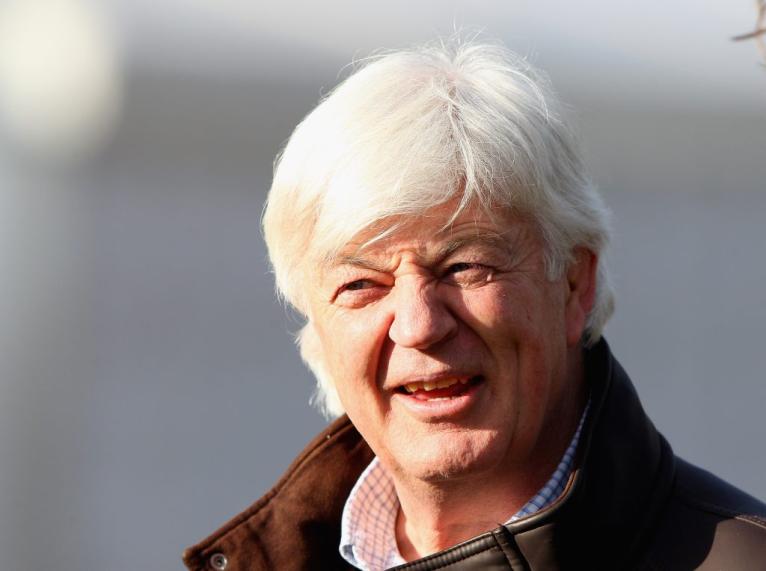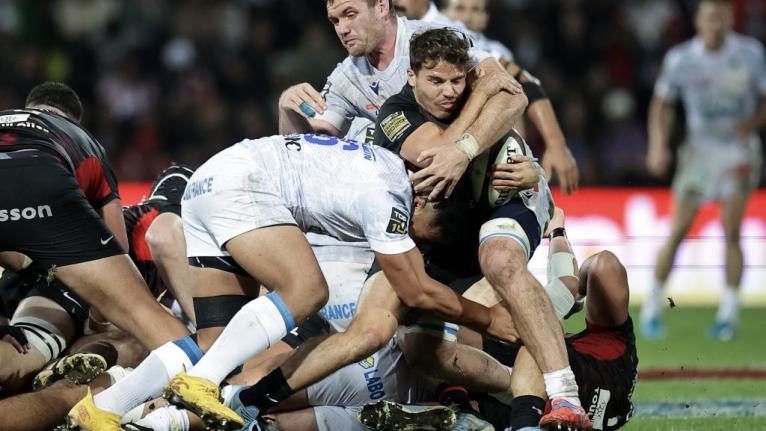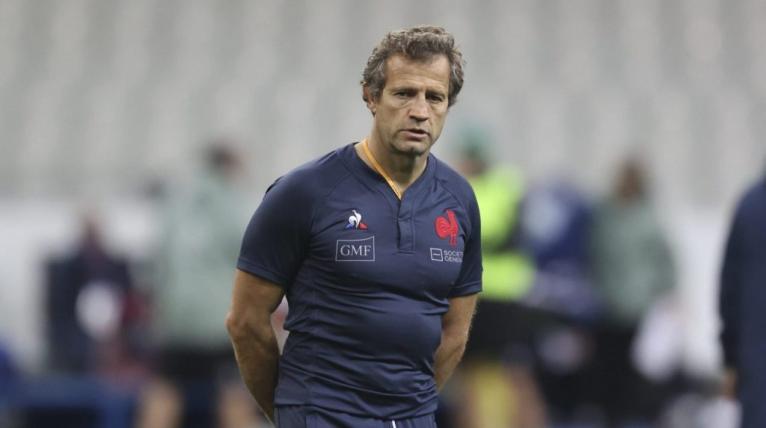Last week one of the great men of the game in the UK, Kevin Bowring, passed away unexpectedly at the age of only 70. Kevin was the first professional coach of Wales in 1995 and the head of elite coach development for the RFU in England between 2001 and 2016.
He was responsible for nurturing the growth of a flock of young coaches who are now at the forefront of the European game – too many to count. Ex-England head coach and Leinster innovator Stuart Lancaster [now in charge of Racing 92], and Fiji’s Olympic Sevens-winning supremo Ben Ryan are just two of the notables whose careers have been propelled on a massive upward trajectory by the rocket-booster of Bowring’s support and encouragement.
As Ryan commented succinctly, “Kevin mentored me, taught me, moulded me. Pushed my thinking upstream, when as a young coach I only ever swam downstream. Made me always want to learn, to grow. A beautiful man and I will carry his spirit in all I continue to do.”

I last met Bowring at the beginning of January, to watch the Bath-Racing 92 Champions Cup game in the West Country. It was a clear sunny day and the fair city built of rich, peanut-butter limestone was looking its finest. We flowed through the streets towards the Recreation Ground among hundreds of supporters regaled in blue, black and white, as through a wedding cavalcade.
The spirit of a rugby celebration was unmistakeable, and only the confetti was missing. We stopped at the Pig & Fiddle for lunch, clinking glasses and toasting to our good fortune. That glorious afternoon, even the tiny legroom of the seats in the Rec’s temporary stand seemed bearable.
We drilled down into the topic of our lunchtime conversation, the advent of professionalism, in which Kevin was a key force as a national coach on the cusp of the transition. As he recalled ruefully, “You know, the southern hemisphere got the jump on us in 1995. They had been preparing for the switch to professionalism for two or three years before it happened, and we were caught on the hop. We had no idea what to do.”
The ‘club-versus-country’ debate is as old as the start of the professional era and it is constantly remade anew. Professionalism turned a modest and Corinthian spirit of cooperation into outright war. The blades of business gleamed, and the honed edge of private investment cut deep into the game, at least in the northern hemisphere.
Where the trifecta of southern nations was able to immediately contract its leading players thanks to a broadcasting deal with Rupert Murdoch’s News Corp worth AUD $555m, the equivalent in the north was a very big black hole.

Nature abhors a vacuum and the empty space was quickly filled by benefactors who had made their money outside rugby. Ex-RFU director Rob Andrew takes up the story: “It was like the Wild West when the game went professional. We all knew it would happen but the actual announcement caught everybody by surprise. No player had a contract and soon everyone was running around trying to sign us up.
“No-one had a clue what we were worth: I was a chartered surveyor then working in London but within a few weeks I was on my way to Newcastle in what was a big leap into the unknown.”
That is where the division of body and soul began for professional rugby. Within 12 months, England had been thrown out of the then-Five Nations for agreeing a unilateral broadcasting deal with Sky TV, without involving any of its partners.
Within three years, club owners had rejected the RFU as their governing body and followed the lead of Northampton’s benefactor Keith Barwell by withdrawing their players from England’s June 1998 tour of South Africa, New Zealand and Australia. The remnants of England lost all three Tests on the ‘Tour of Hell’ by a combined score of 32 points to 198, in what the Australian Rugby Union called floridly ‘the biggest sell-out since Gallipoli’.
Within four years, Newcastle’s Sir John Hall had disappeared from the game along with his financial losses and one Premiership title. It was an all-too-common tale in England and Wales at the time, and the tune will have an uncomfortably familiar ring for those who hear the siren-song of Fabien Galthié withdrawing his top 20 players from the 2025 France tour of New Zealand.
Although the spirit of co-operation between the LNR and FFR is more tight-knit than the huge fissure preceding events on the 1998 tour, there remains a serious concern the ultimate aims of club and country are not aligned, and that the French policy is nothing more than a band-aid covering an open wound.
How much physical time and space does the club game occupy in relation to its international cousin? Let’s start with a table showing the number of players [by league] who played over 1000 minutes during their regular domestic seasons.

The Top 14 in France is almost twice as long as Super Rugby Pacific in terms of matches, and two and a half times the length in terms of its annual calendar. It is also eight games longer than the seasons in both England and the URC. In terms of player workload, its demands are disproportionately greater: the ratio of players-per-club who have played 1000+ minutes in France is 11:1, compared to 5:2 in Super Rugby, 2:1 in England and 1:1 in the URC.
The number of players who played 1000+ minutes at the most successful clubs in each country – and how many of those also represented their national team – reads thus.

Perennial Bouclier de Brennus winners Toulouse only featured seven players who exceeded the 1000-minute threshold last season – leading the Top 14 charts and well below the league average of 11. Not one of those players was a starter for France that season. Les Rouges et Noirs are ahead of the curve, and far more efficient than any of their domestic rivals at protecting their premium players.
In Super Rugby by contrast, there were five 1000-minute+ players at the Brumbies and four at the Blues, including three international starters apiece at both clubs. The URC and Premiership did the best job of shielding their primary assets, with only two players from the top clubs in those leagues breaching the magic boundary. The only regular international among them was Nick Tompkins of Saracens, and he plays for Wales not England.
The final table reveals the average minutes per player during the domestic season, in the probable starting XVs of the six nations.

Now let’s review those figures in conjunction with Galthié’s original comments on the withdrawal of the top 20 players from France’s 2025 tour. A quick reminder:
“We follow 100 players but we have identified a ‘premium’ group of 20. We want them to have consistent development. We want to work hand-in-hand with the league and the clubs.
“Our goal is for players to be able to give the best of themselves in the French team, but also in-club. We want to go further [nationally], while taking into account the challenges of the clubs.
“Players will benefit from four mandatory weeks off, and four weeks without matches. We built on trust while adjusting the management of the international season by choosing to rest our ‘premium’ players during the summer tours.”

Galthié’s premium group of 20 would probably be based around three main clubs: Toulouse, Union Bordeaux-Bègles and La Rochelle. I identified 13 such players from Stade Toulousain, with another seven from Stade Rochelais and six from UBB.
Although the UBB half-dozen averaged 1027 domestic minutes in 2023-24, players from the other two clubs averaged only 720 [La Rochelle] and – wait for it – a mere 398 minutes at Toulouse. While there would be a strong case for excusing UBB representatives such as Maxime Lucu, Nicolas Depoortère and Yoram Moefana from touring duty, there is no reason to do it at the other two major Top 14 clubs.
Toulouse especially are already operating at Leinster-like levels of player-management efficiency, with all the available evidence suggesting a domestic regular season of between 300 and 500 minutes is ideal preparation for the tougher international schedule to come. That is why Ireland and South Africa are thriving, and it is also why England were able to send a full-strength squad to the Land of the Long White Cloud in July.
The top players in Australia and New Zealand could do with more R & R, and the constant need for their presence at Super Rugby level probably reflects the current weakness of the competition, undermining efforts at the level above it. Club versus country remains a major conundrum in the professional game, whichever way you slice it. As Bowring knew all too well, the wounds in the game slashed open in 1995 have yet to fully heal, those sunny days in Bath are all too few, and rugby is swimming upstream for its very existence.


Comments
Join free and tell us what you really think!
Sign up for free